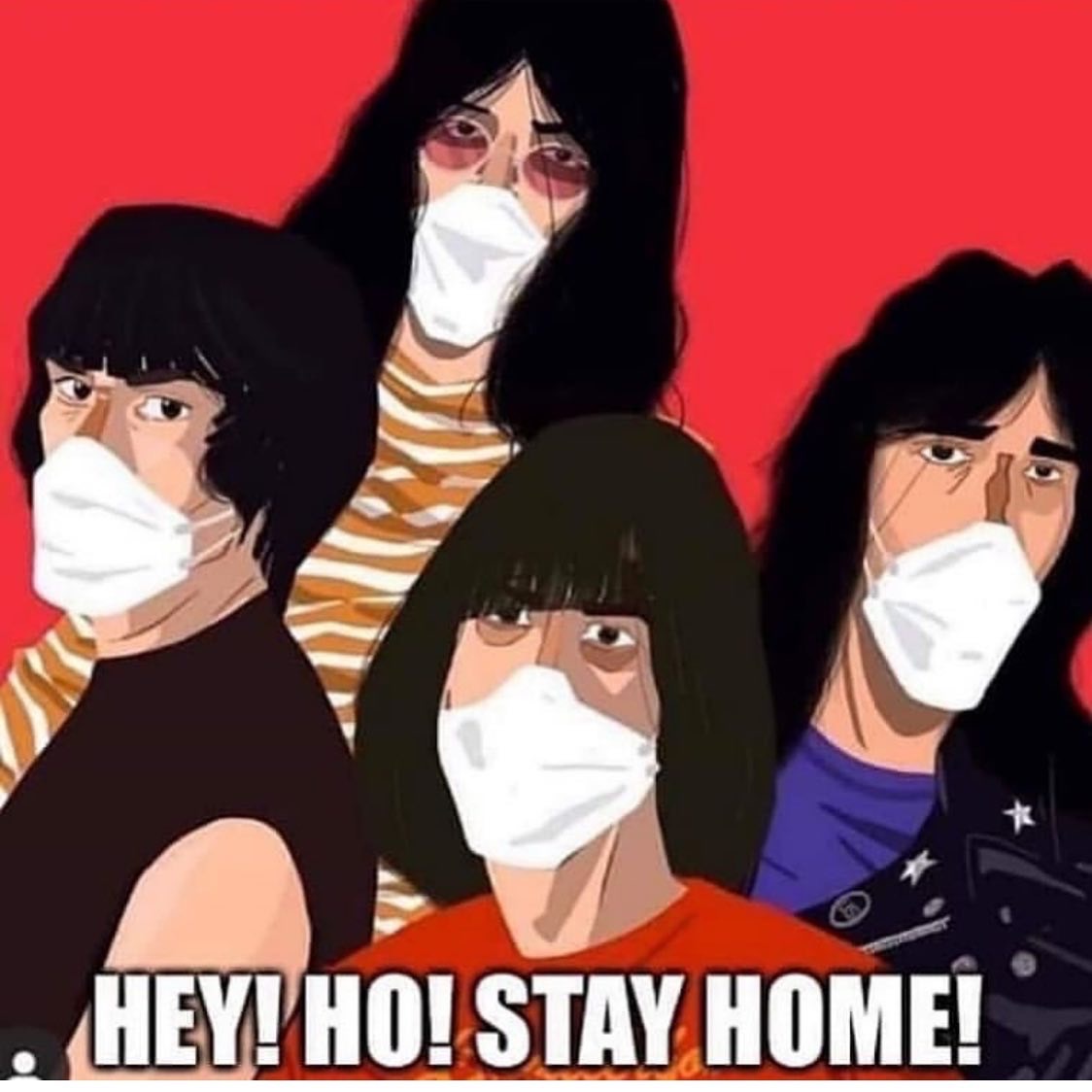Foreigners Self-Isolating in Croatia: Do You Feel Safer? Daniela from California in Split
April 7, 2020 - Do foreigners in Croatia feel more or less safe sitting out COVID-19 here than in their home country, and what are their experiences? A new series on TCN, with Daniela Rogulj from California in Split as our 29th contributor.
Oxford University recently published some research on government responses to coronavirus which showed that Croatia currently has the strictest measures in the world. While inconvenient, this is a good thing in terms of reducing the spread of the virus, and I am certainly not alone in my admiration of the official Croatian handling of this crisis in recent weeks, both in terms of action and communication.
But what do other expats here think? And how does it compare with the response in their home country? Would they rather sit this one out here or there? In the first of a new series on TCN, we will be featuring expats from all over the world to see what their views are on life in corona Croatia rather than back home. So far we have heard from expats in Croatia from Romania, USA, Ireland, UK, Mexico, Argentina, Spain, Singapore, Holland, Canada, India, Hong Kong, Venezuela, Latvia, China, Honduras, Hungary, Moldova, South Korea and Germany. Next up, TCN's Daniela Rogulj from California in Split.
If you would like to contribute to this series, full details are below. Now, over to Split.
Firstly, how are you? Are you alone/with someone? Tell us a little about your situation and sanity levels.
I’m at home, in Split, with my mother, father, and grandmother, all of whom are high risk. My grandmother is 87 and, as you’d expect, has a lot of underlying health conditions at her age. My father is no spring chicken at 66, while my 59-year-old mother just finished breast cancer treatment.
Our spirits are as good as they can be at the moment. Grandma is (mostly) blissfully unaware, and I would like to keep it that way, since she doesn’t leave her ‘bunker’ of an apartment below us anyway. She’ll ask once or twice a week about the latest news with a troubled expression stretched across her face. I tell her not to let any strangers in and to keep washing her hands. Her daily routine improved, in a way, since we can’t beg her to come out to dinner with us once a month. Any excuse to stay at home.
As any good Balkan mother would, my mother is often seen disinfecting the house multiple times a day with bleach, in between bouts of CNN and N1, while my recently-furloughed travel agent father now has the time to work through his immense music collection, composed of thousands of records, CDs, and box sets. I’m sure the whole Firule neighborhood could hear the speakers blast from our balconies - 'Tata Quarantino tunes of the day', I call it.
My life has changed a lot and not at all. Being a freelancer in Split for almost five years, I’m used to working from home and already have a routine in place. My mornings still begin with warm lemon water and articles for Total Croatia News, though with all of the corona news we have been covering, I’d say those days roll into the evenings fairly quickly - and the TCN team is easily working upwards of 14 hours/day on average. Since I have no reason to leave the house other than grocery shopping, I’ve converted my bedroom and balcony into my home gym and force myself to get 30 minutes of exercise every day. Fresh air and Vitamin D seem to be doing wonders for my mental health. The warm weather in Dalmatia lately is also a huge bonus - and a foolproof way to bypass burnout. And I couldn't imagine quarantining without my cats.
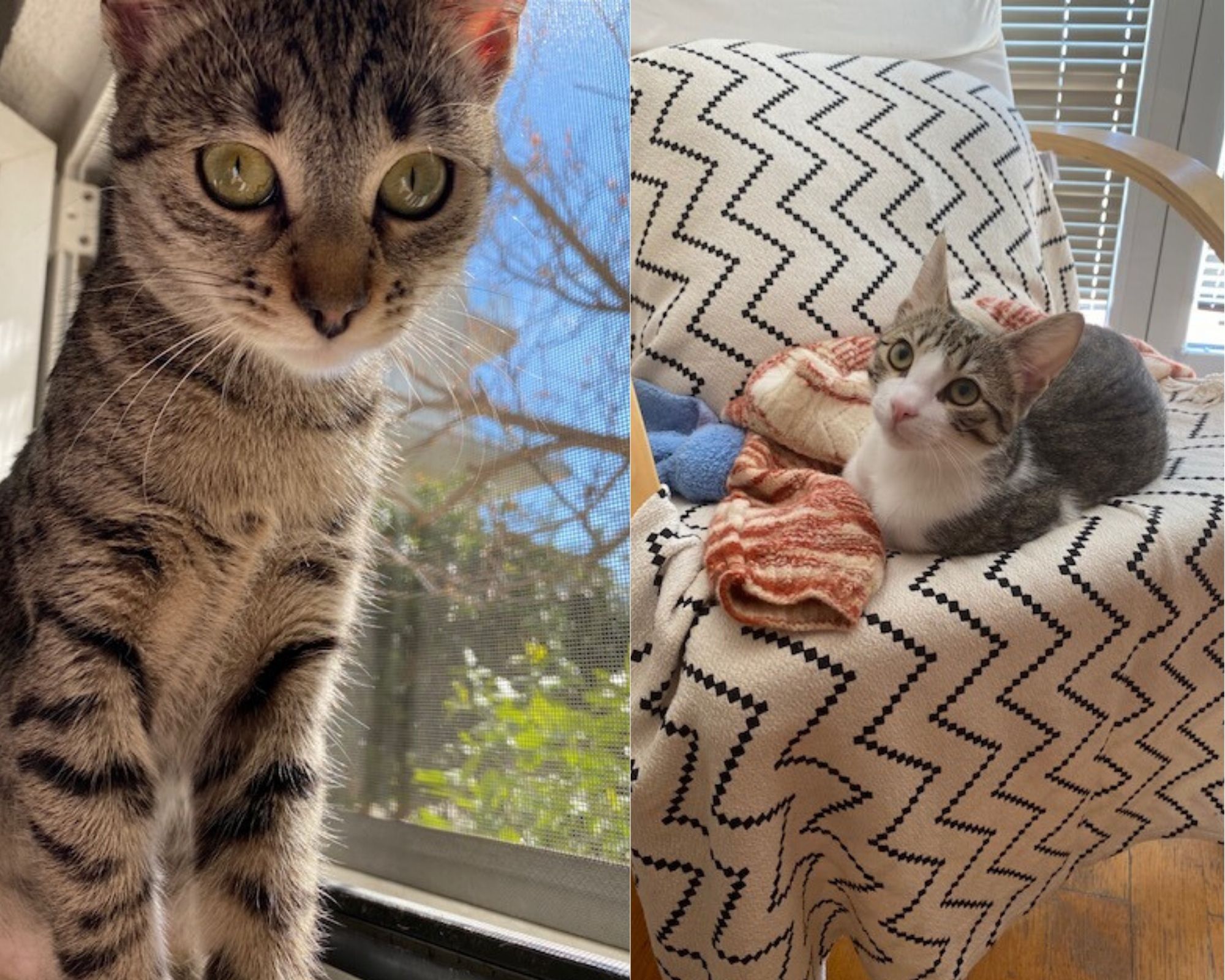
Keeping in touch with friends has been key, and Zoom chats are increasingly on my agenda - especially with my boyfriend, a water polo player for Jadran Split, who had to jet back to Australia 24 hours before Croatia went on lockdown… to prepare with the Aussie national team for the Olympics Games, which have been postponed for next summer. I’m not sure when I’ll see him again, but have hope his career will continue in Europe once all is said and done. Going through the corona crisis without your partner has certainly has its ups (I’m too busy for anyone else) and downs (for obvious reasons).
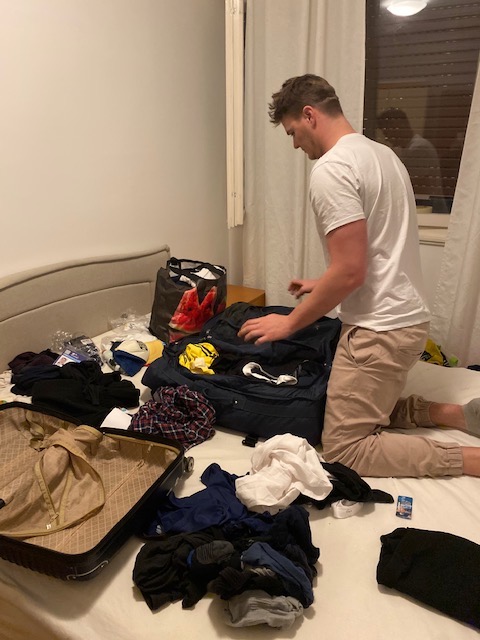
All things considered, my sanity levels are steady, though the bags under my eyes are growing darker.
When did you realise that corona was going to be a big issue?
About a week before my trip to London at the beginning of March. My boyfriend and I had a quick weekender planned March 5-8 as he had no water polo games scheduled at the time (the national teams of Croatia and Montenegro were using the month to prepare for the final Olympic qualifying tournament in Rotterdam). Croatia only had one case at the time, though the outbreak was spreading around Italy - and fast. Paul Bradbury (my lovely TCN boss) seemed to know before everyone that the coronavirus would take off here. I remember him telling me to rethink my London trip as he had a feeling borders would close soon. My mother begged us not to go, either, as she’d been in the middle of the corona buzz since day one, but I often shrugged her off as I thought she was panicking (in those early times, she was).
We got to London on a half-empty plane and took an Uber to our hotel to avoid public transportation, as that was the one promise I made to my mother, who packed us with gloves and face masks to wear while we were there. Life had not stopped in London, then. While there was a lot of talk, no one really seemed to be taking things too seriously and blamed the media for hype. We went to packed pubs, busy dinner spots, museums and markets, and even a Chelsea game.
It wasn’t until our flight back that things grew eerie. Heathrow was slower than ever, and our plane empty. When we arrived in Zagreb, the passport control woman asked if we’d been to China or Italy in the last two weeks. We got back to Split late that night and I was convinced that my sore throat was a symptom of COVID-19 - and not due to the fact that I was still nursing a hangover from two days before.

Things escalated in the following two days. Airlines began announcing cancellations in Europe, the Croatian Ministry of Tourism put all marketing activities to a halt, and Croatia went from 1 to eight cases in a matter of days. My mother begged me not to leave the house, and I didn’t. I have been self-isolating since March 11.
What is your impression of the way Croatia is dealing with the crisis? How safe do you feel?
Croatia is very lucky that former Health Minister Milan Kujundžić was dismissed just days before the coronavirus hit here, or else we’d be in big trouble.
Overall, I’m very pleased with how Croatia has dealt with the crisis. The National Civil Protection Headquarters is a team of superheroes and our shining light during this crisis, and they’ve done a brilliant job introducing measures early to keep the infection at bay and the numbers low.
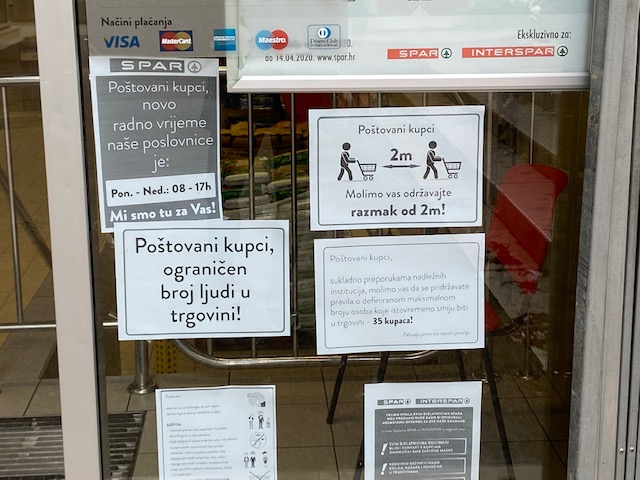
I feel safer than ever as the chances of getting hit by a bus or car are slimmer than ever (we all know how Croatian drivers can be). The streets are empty. The shops are taking proper hygiene measures and only allowing a certain number of shoppers in at once. They are also fully stocked, so IF things got really bad, at least I’d have enough toilet paper to get me through it. It’s rare to see anyone without a mask, and the two-meter rule is mostly taken seriously.
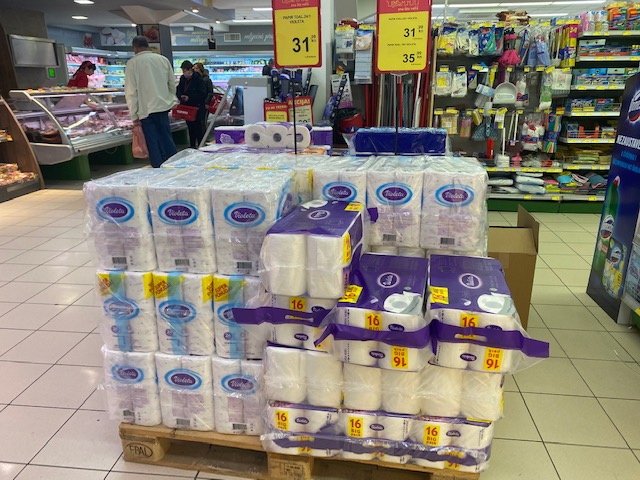
Is there anywhere better than Croatia to self-isolate, anyway?
Now compare that to your home country and how they are handling it. What is Croatia doing better/worse?
Yikes, where do I begin? The United States, as a whole, is a nightmare. They have a president who wanted the churches to be full on Easter, only to retract and say that 100,000 deaths is ‘very good’. The death toll has already topped 10,000. New York is scrambling to obtain ventilators and is already over 130,000 cases - and that’s just one state! I have to tip my hat to Governor Andrew Cuomo, who is doing the best he can given the circumstances.
I am from California, where Governor Gavin Newsom ordered a mandatory ‘shelter in place’ to all 40 million residents in the state early on. Only grocery stores and essential retail are open, while restaurants and bars are delivery only, large gatherings are banned, and social distance learning is in place for schools. California currently has over 15,000 cases and is 4th in the US.
Croatia wins on taking measures earlier than the US as a whole, though it’s hard to compare a country of 4 million and 327 million.
What about official communications from the authorities, compared to your home country?
Are we basing this off of the daily White House briefings? Enough said.
What the Fauci?
— Lauren Werner ? (@LaurenWern) March 20, 2020
Dr. Anthony Fauci curbs his Trump enthusiasm. pic.twitter.com/HRFKKVmuW8
Also, thank you, Paul, for putting me on the live corona updates, so I always know what’s going on in Croatia at any second of the day.
What's the one thing you wish you had taken with you into self-isolation.
My trainers, who have been amazing and publishing all workouts online (thank you F & T). I also wish I brought my will to drink with me, since I haven’t had an alcoholic beverage since March 8, and feel like a chilled gin & tonic would spice up the corona updates nicely during happy hour.
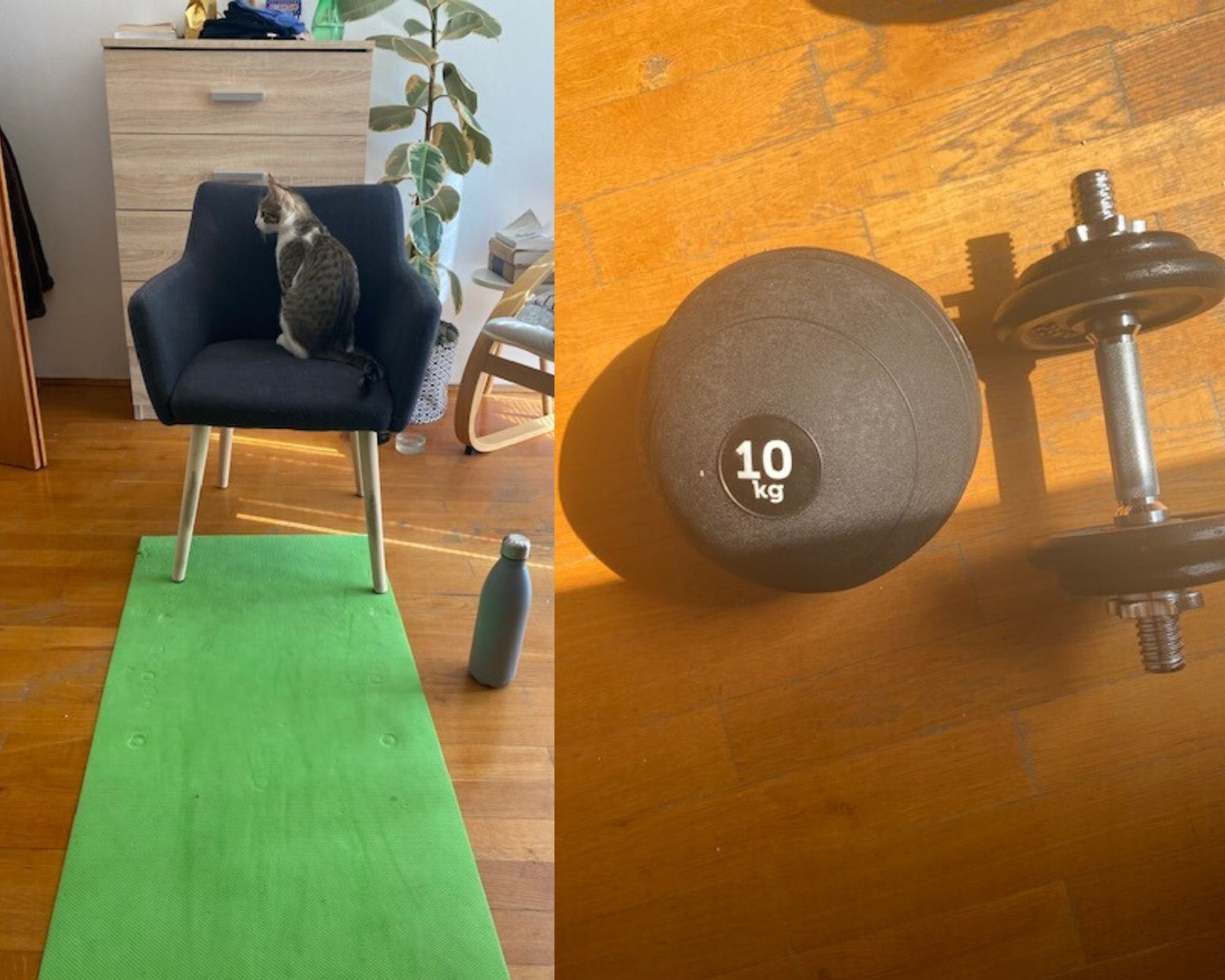
Maybe another sweatshirt to add to my rotation weekly rotation would have been smart, too.
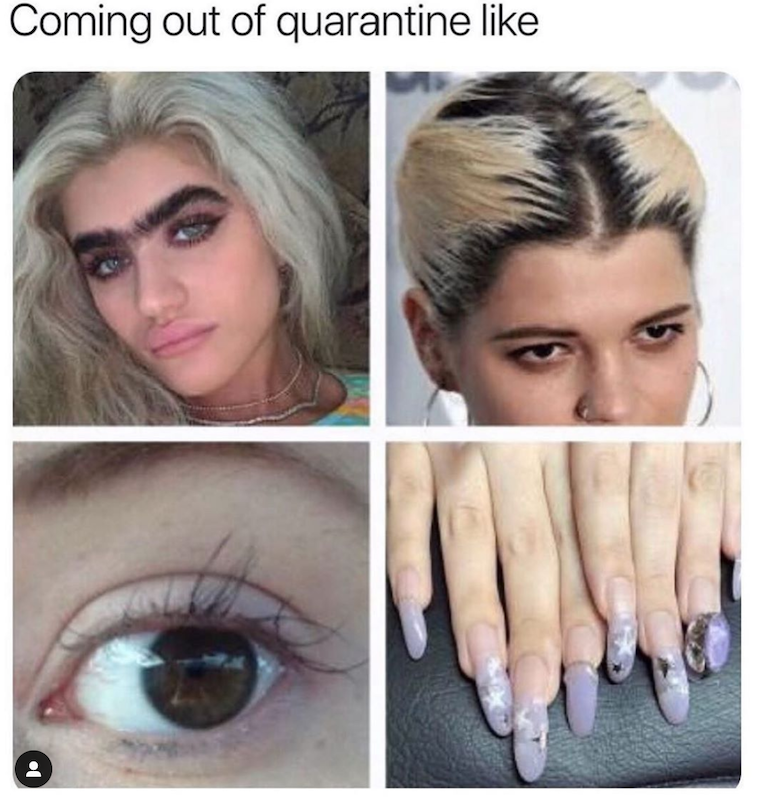
I am grateful, however, that I am a relatively low-maintenance woman who will not suffer too severely from her beauty salon closure, though I do wish I learned how to do my eyebrows properly before all this hit.
One thing you have learned about yourself, and one thing you have learned about others during this crisis.
As I mentioned above, I’ve been more or less self-isolating since March 11, which is nearly a month, and not once have I felt restless or anxious, which is a bit out of character. Maybe I’m numb to it all by now, or maybe I’ve grown into the homebody I always knew I was. But I feel good; a bit tired and nostalgic here and there, but good. It’s important to go with the flow, because we can only live one day at a time right now, and I think that is a massive lesson I've learned through this.
This crisis also made me a bit more generous. While my bank account certainly isn't growing, I’ve been donating to various animal shelters across Croatia since I am essentially 'saving' money on taxis, coffee dates, and nights out. It’s a win-win, isn't it?
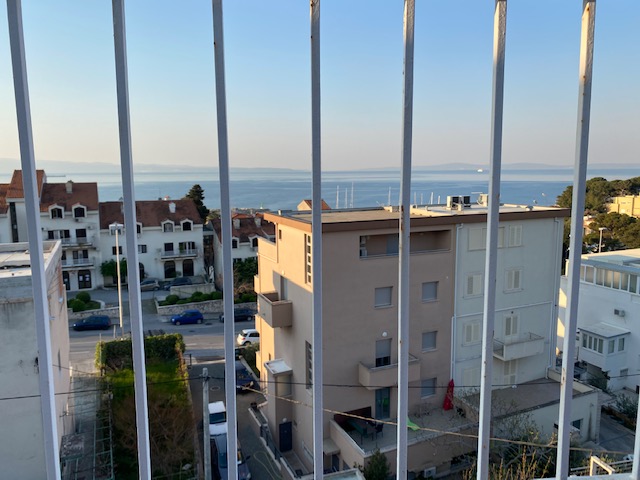
There is a lot of uncertainty in the world at the moment and I feel like I am wrapped up in a lot of my own worries at home, but it is comforting to know that we’re all in this together - and there is a light, somewhere. I want to believe that this is the shift we needed to check ourselves and everything around us. While I never imagined it’d take a global pandemic to get us back to square one, let’s hope that the grass is greener on the other side and we make the most of hitting rock bottom. It can only go up from here (I think).
Thanks, Dani, stay safe and see you on the other side. And thanks for all you do for us at TCN - you have a lot of fans.Thanks, Dani, stay safe and see you on the other side. And thanks for all you do for us at TCN - you have a lot of fans.
TCN is starting a new feature series on foreign experiences of sitting out COVID-19 here in Croatia compared to their home country. If you would like to contribute, the questions are below. Please also include a para about yourself and where you are from, and a link to your website if you would like. Please also send 3-4 photos minimum to This email address is being protected from spambots. You need JavaScript enabled to view it. Subject Corona Foreigner
If you would be interested to record a video version for our partners www.rplus.video please let us know in the email. Thanks and stay safe.
Foreigners Self-Isolating in Croatia: Do You Feel Safer Than in Your Home Country?
Firstly, how are you? Are you alone/with someone? Tell us a little about your situation and sanity levels.
What do you think about the economic measures the government is taking, are they helping your business? (PLEASE IGNORE IF THIS DOES NOT AFFECT YOU)
When did you realise that corona was going to be a big issue?
What is your impression of the way Croatia is dealing with the crisis? How safe do you feel?
Now compare that to your home country and how they are handling it. What is Croatia doing better/worse?
What about official communications from the authorities, compared to your home country?
What's the one thing you wish you had taken with you into self-isolation.
One thing you have learned about yourself, and one thing you have learned about others during this crisis.
TCN has recently become a partner in Robert Tomic Zuber's new R+ video channel, initially telling stories about corona experiences. You can see the first TCN contribution from this morning, my video from Jelsa talking about the realities of running a news portal in the corona era below. If you would like to also submit a video interview, please find Robert's guidelines below
VIDEO RECORDING GUIDE
The video footage should be recorded so that the cell phone is turned horizontally (landscape mode).
There are several rules for television and video news:- length is not a virtue- a picture speaks more than a thousand words
In short, this would mean that your story should not last more than 90 seconds and that everything you say in the report should be shown by video (for example, if you talk about empty streets, we should see those empty streets, etc.).
How to do it with your cell phone? First, use a selfie camera to record yourself telling your story for about a minute and a half. Ideally, it would be taken in the exterior, except in situations where you are reporting on things in the interior (quarantine, hospital, self-isolation, etc.). Also, when shooting, move freely, make sure everything is not static.
After you have recorded your report, you should capture footage that will tell your story with a picture, such as an earlier example with empty streets.
One of the basic rules of TV journalism is that the story is told in the same way as a journalist with his text. Therefore, we ask you for additional effort. Because we work in a very specific situation, sometimes you may not be able to capture footage for each sentence of the report. In this case, record the details on the streets: people walking, the main features of the city where you live, inscriptions on the windows related to the virus, etc.
The same rules apply if you are shooting a story from your apartment, self-isolation, quarantine. We also need you to capture footage that describes your story.
When shooting frames to cover your reports, it is important that you change the angle of the shot (in other words, shoot that empty street from several angles). Also, when shooting a detail, count at least five seconds before removing the camera to another detail.
The material should be about 5 minutes long (90 seconds of your report + frames to cover your story).
After recording everything, send us to Zagreb, preferably via WeTransfer to This email address is being protected from spambots. You need JavaScript enabled to view it.
Successful Diaspora Returnee Stories: Daniela Rogulj, Total Croatia News, Split
June 18, 2019 - TCN's recent series featuring the successful returnee stories from the speakers at the recent diaspora tourism conference in Split led to several requests for more of the same. And so we continue in the same vein, looking at more people who have made the successful switch back to the Homeland, starting with TCN's very own Daniela Rogulj, who made the switch from California to Split.
1. You are from California, returned to Croatia, something that many diaspora dream of doing. Tell us briefly about your journey.
It all happened by accident. In a nutshell, I came to Croatia via San Diego, San Francisco, Nashville, and London. I was born and raised in San Diego to a mother from Metković, father from Split, a grandfather from Prapatnica and grandmother from Stari Grad on Hvar. I moved to San Francisco for University, managed a cupcake shop, graduated, played a part in the tech industry, started developing my own mobile app and said bye to it all at 23 for Nashville and eventually London.
After impulsively crossing the pond with my parents at 24, which saw me nearly overstay my six months as an American in the U.K., I needed a solution, and fast. I went back to California to get my birth certificate amended (my last name was spelled ‘Roguli’ instead of ‘Rogulj’), so I could begin the process of obtaining my Croatian citizenship to ensure I could remain living in London. Let’s just say that upon my return back to Heathrow, the immigration officer was having a bad day, and back to California, I went. Over the next few months, my parents decided to move back to the homeland and settled in Split. I visited them in Split the summer of 2015 without the faintest idea that it would be my home for the next four years.
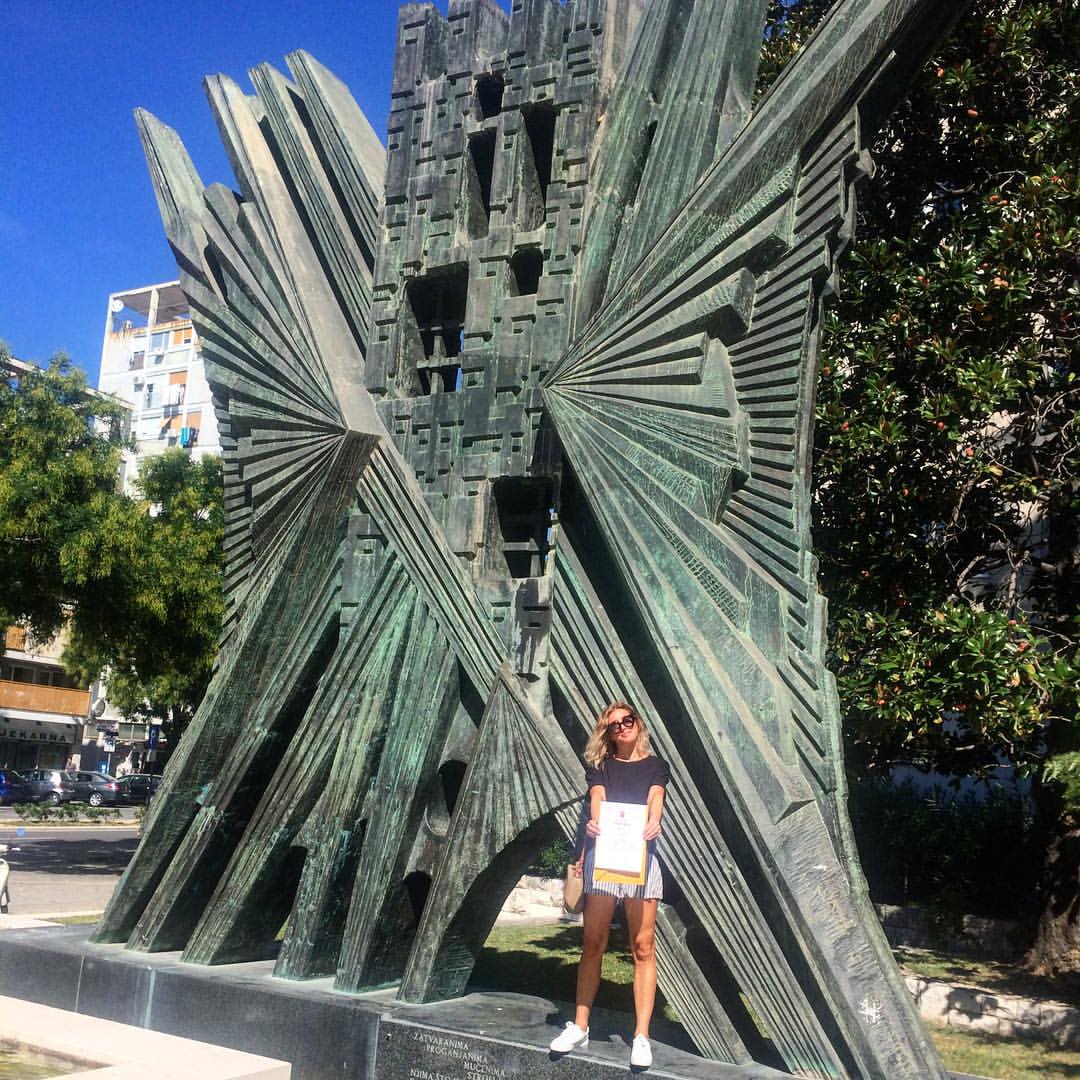
The day Daniela became a Croatian citizen
My first 10 or so months in Split were spent trying to meet people while figuring out what I would here. A job at Total Split popped up on my Facebook feed in April 2016, and considering I studied journalism in college and was the token blog writer for the San Francisco startups I worked for, I gave it a shot. I joined Total Croatia News in May of 2016 to lead Total Split, and that’s when my life in Croatia really began.
Not only did TCN open a world of doors for me, with invites to exclusive events and excursions to explore the gems of Croatia, but I've had the chance to meet (and befriend) innovative business and restaurant owners around the country, many of whom are in the diaspora community. It's also given me opportunities I never thought possible - at least not possible for me in the United States. Like following Hajduk from Split to Liverpool, or the Croatia national team from Zagreb to London. My work for TCN during the World Cup last summer was recognized by the largest sports radio station in the world, and I found myself as the Croatian correspondent for various radio shows in the UK last year - the BBC even called me for an interview. I marked my third year with TCN last month (thanks Paul & team).
2. Looking back, what were your hopes, expectations and fears about moving to Croatia?
Maybe it’s best that I didn’t have many considering I had no plans to live here at all. After I received my citizenship that summer (which surprisingly took a painless two weeks in Croatia compared to a year of torture in London and the US), I must have told my parents every day that I would not be calling Croatia my home and furiously looked at apartments and jobs in Berlin or anywhere but Croatia. To me, Croatia was my summer home; where life stopped when the seasons changed. I didn’t know Croatia past the warm and lively summer season, and I wasn’t interested in finding out.
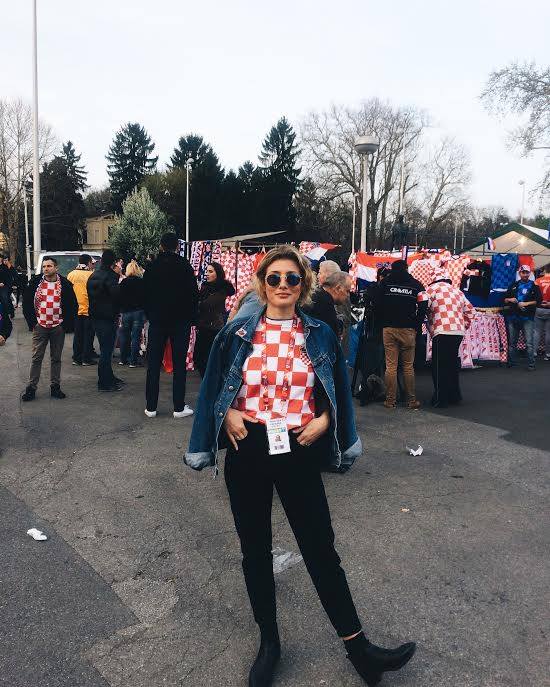
But after the summer settled that September and I celebrated my 25th birthday on a mild Split day, something changed. Split wasn’t just the transit hub I knew to get to Hvar or the pitstop my family would make for a Hajduk game. Split was a spirited city - and at the time, it was experiencing a new renaissance. I told myself I’d be a fool not to give Split a chance, and perhaps my biggest fear then was not knowing the slightest bit of what lay ahead. I was lucky to be young enough at the time to fail and start over again 100 times, and I guess I expected that much. I was worried about meeting people, if the language barrier would make it harder, and what job I would do in Croatia at all. I had experience in the tech industry, which at the time I had no idea even existed in Croatia, and I knew I wasn’t comfortable jumping into an office job in a working culture I knew nothing about. The one upside about moving here without a clue of what I’d do is that it forced me to get out, meet people and begin the conversation. This settled my fear and slowly made me more and more comfortable with my decision to stay here.
3. How supportive was your Croatian community back home at the time?
My Croatian community back home consisted exclusively of my extended family, and I remember some of them expressing mixed feelings about it all. The ones that knew Croatia well wondered what I’d do here. “You’ll make significantly less than you did in San Francisco, and you have no idea what it’s like in the winter!” I’m sure even today some of them think I’ll come back to the States, which isn’t in my plans whatsoever.
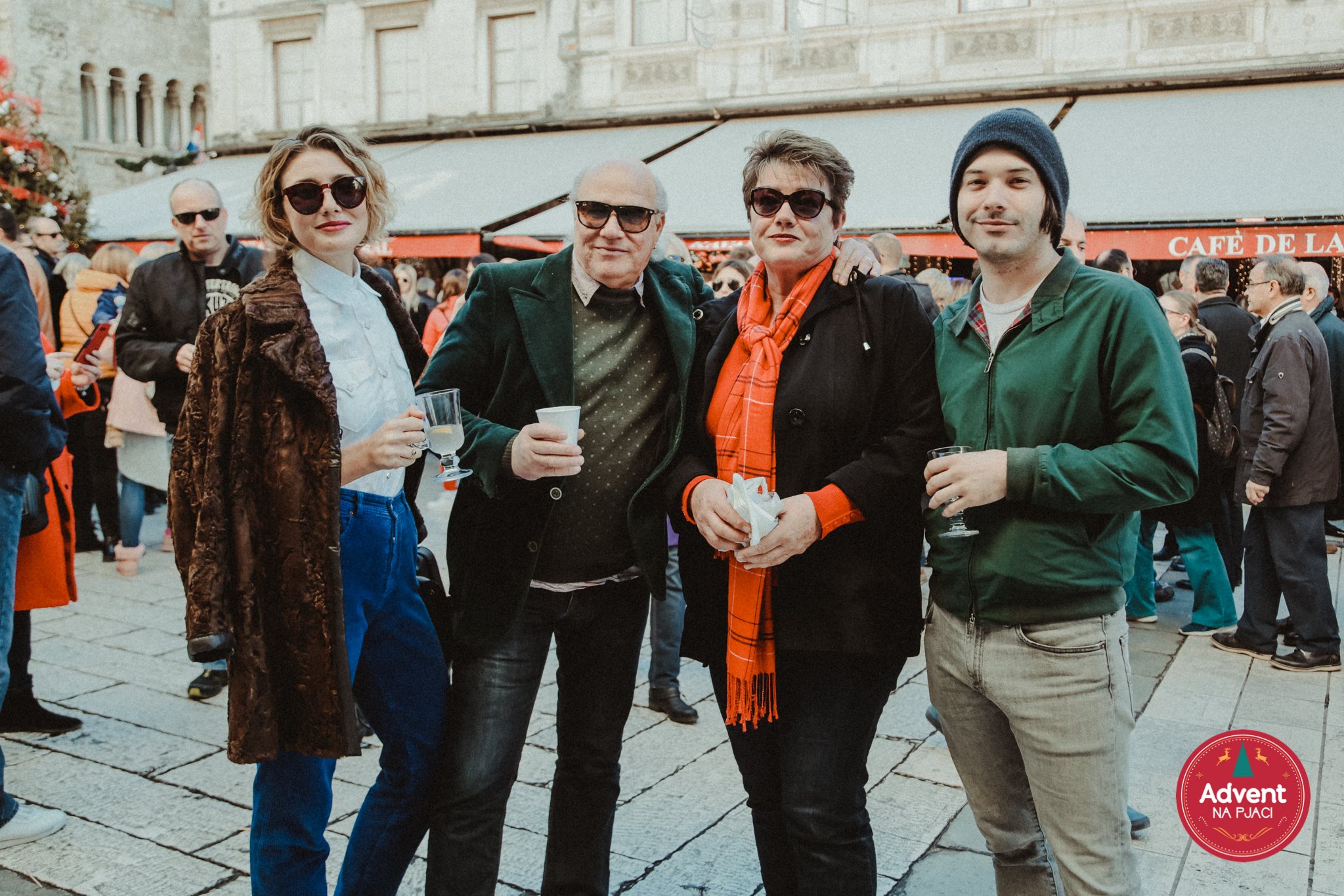
My immediate family has supported me unconditionally throughout my journey, and I owe them the world for that. It certainly helped that my parents were by my side as I started my journey in Split.
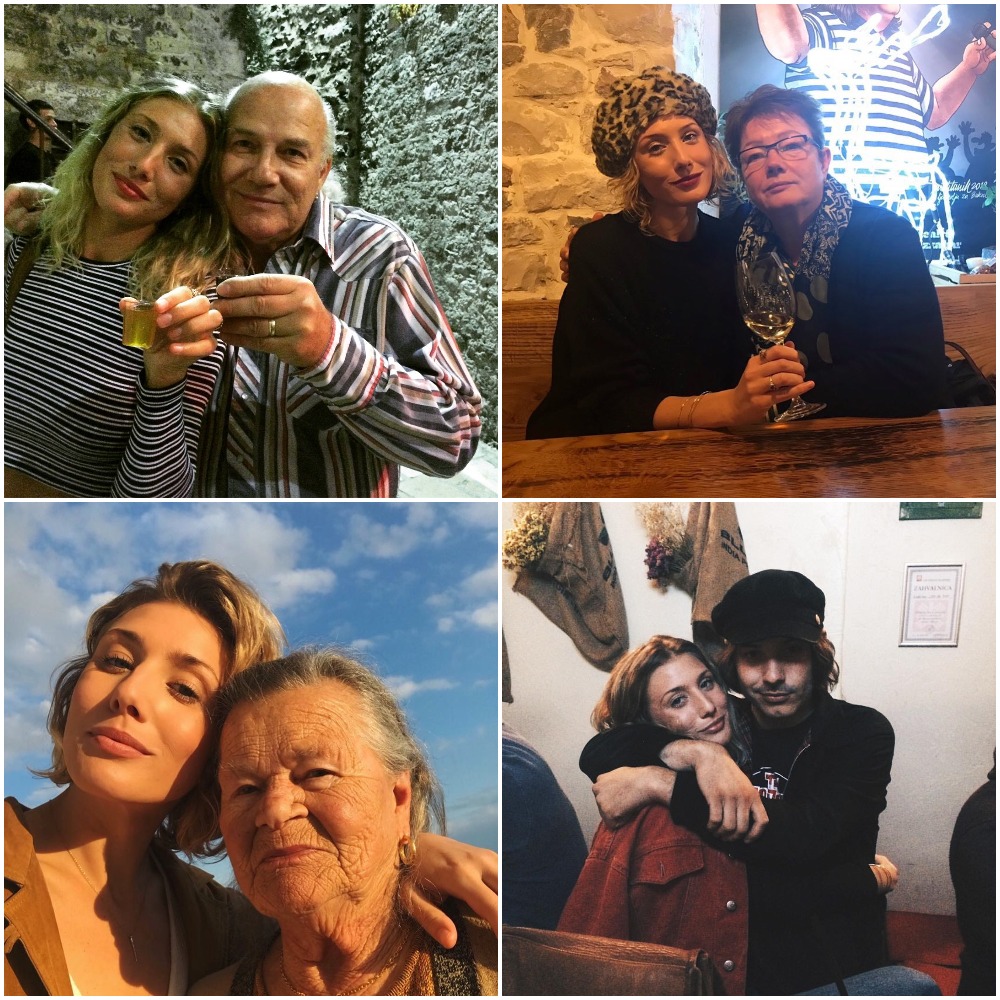
Because I never officially announced that I was moving to Croatia, and just proceeded to stay after that summer, I think I missed a lot of the pressure and criticisms there could be otherwise.
4. What were the main differences in what you expected to find in Croatia and the reality of living in Croatia?
Learning to live seasonally. Something I cherish now, but struggled with when I couldn’t find tomatoes my first winter here. But also adapting to the seasons in general - spring is the warm up, summer is the peak when you're too busy to breathe, autumn is reserved for unwinding from the season, as is winter, but everything in the winter is closed. Seasons don’t exist in California, so this took some getting used to.
The pace of life, in general, is another one. While it’s easy to adapt to the lax mentality in Dalmatia when you’re holidaying here in the summer, it throws you for a loop when you’re living here permanently and trying to get things done. Though it has its perks, and I’ve definitely adopted the ‘pomalo’ way in some aspects of my life, like learning to walk at a considerably slower pace than my city days in San Francisco. And to-go coffee is a thing of the past.
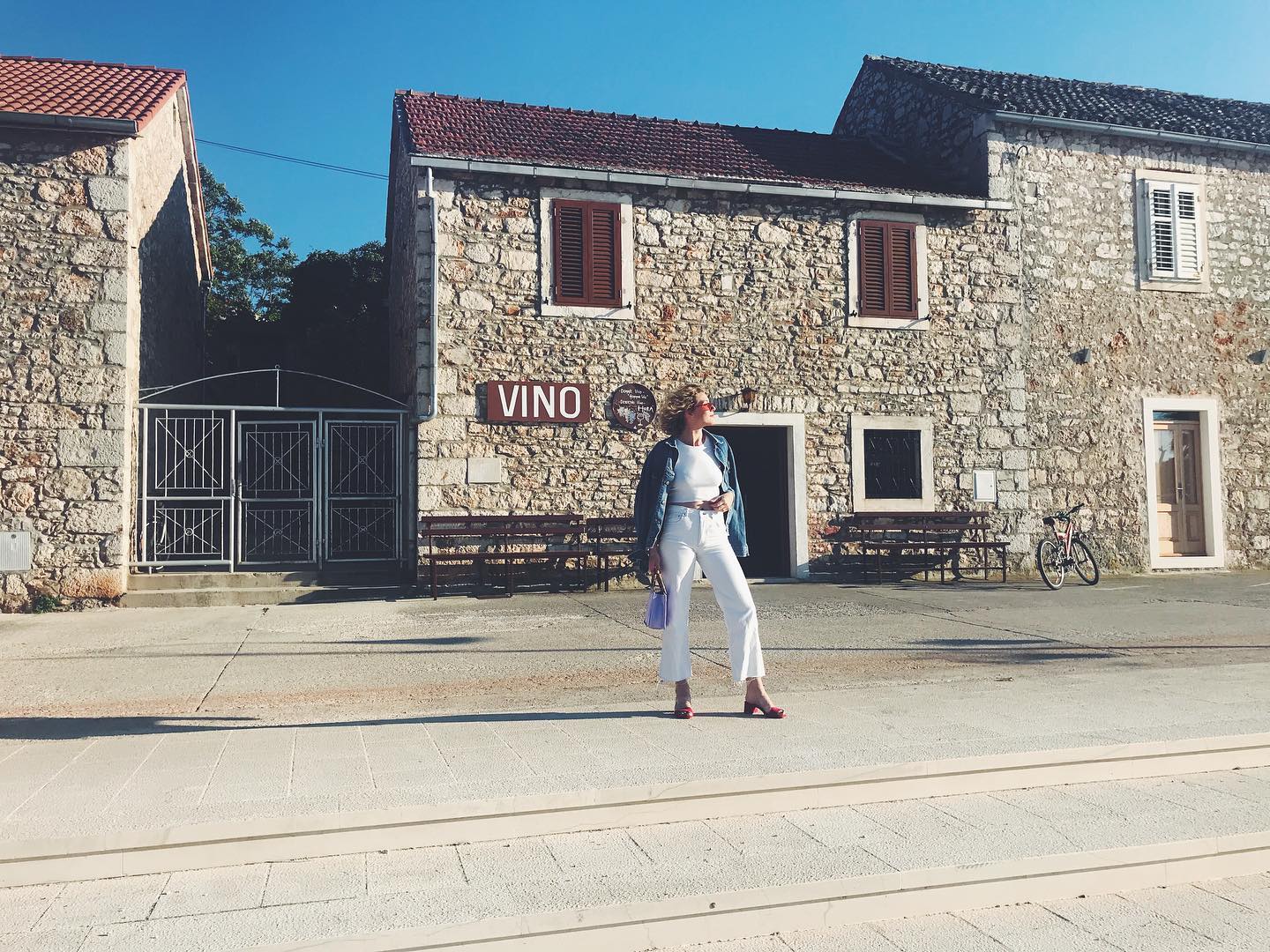
Furthermore, America is the land of customer service, and you learn pretty quickly that Croatia is not. Though I still tip as I would in the States hoping that this small nod to good service can be an example for others.
A monumental difference is how safe Croatia is. Ditching the pepper spray from my city days for the uninterrupted late-night walk home is a massive bonus. You also get the feeling that the people around you will lend a helping hand, without asking any questions.
4. Many diasporas think of returning but few do. In truth, there is little information out there about real-life stories and help/info about the process. What advice do you have for those who are thinking about making the move?
Be patient, take a lot of deep breaths, stay here in the winter or a good part of the offseason, and try not to compare it to back home. Coming here with a plan is probably smart, though you have to expect that plan will be altered, edited, amended, adjusted, and most likely rewritten at least once. On the contrary, I had no plan and really no idea, and still managed to find my way.
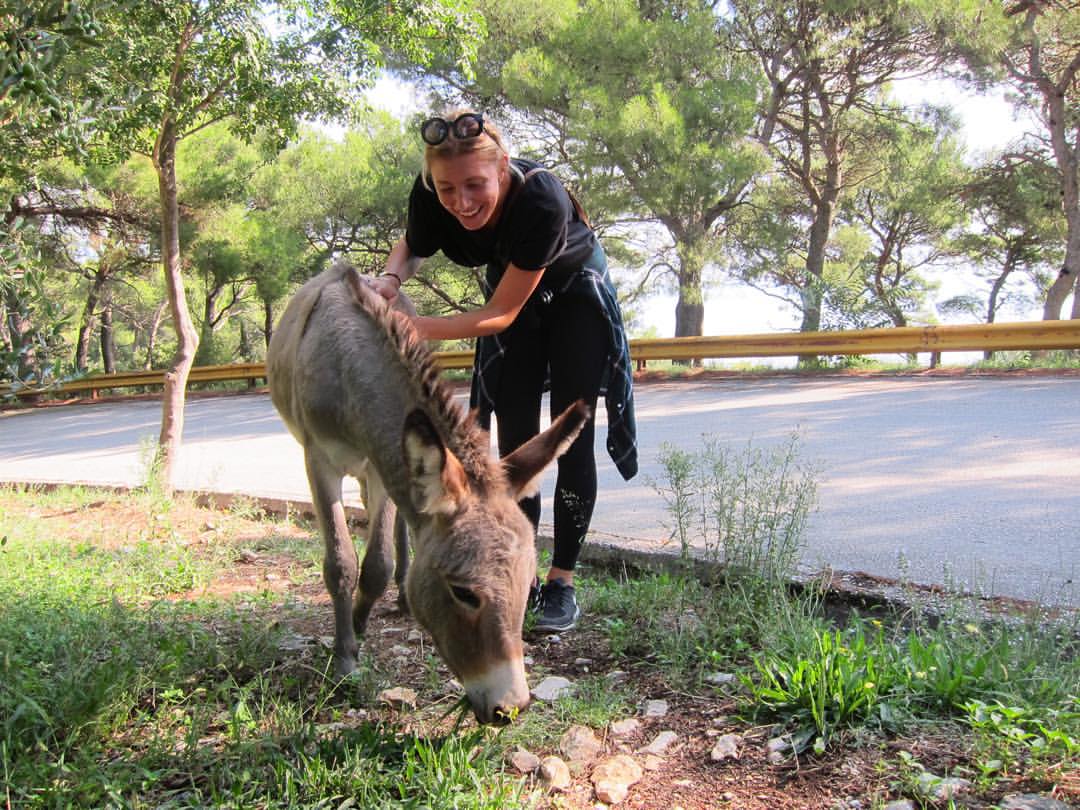
While it's nearly impossible for us stubborn Dalmatians, ask for help, because you’ll be surprised to find how many people have already been through what you’re going through. And if they don’t have answers, they’ll at least lead you in the right direction.
But really, deep breaths and the willingness to endure uphill battles is a must, though coming out on the other side is incredibly rewarding. Come determined and try to weed out a lot of the negativity you'll hear - it's not always true, and remember, we do love any reason to complain.
5. How were you perceived in Split as diaspora moving back - was the welcome warm?
“Why in the world would you leave California?” If I had a lipa for every Uber driver’s baffled expression when I tell them I live here permanently…
On the upside, it does open a platform to educate Croatians thinking of leaving that life isn’t always greener on the other side.

But yes, the welcome was warm, and you quickly learn that there are a lot of others just like you; a lot of others who took the leap to live here. And that is a feeling of comfort by itself.
6. Through a lot of hard work, you have been very successful, while many foreigners have given up and left Croatia. What are the keys to success in doing business in Croatia in your opinion?
Learn the importance of having a bubble (and when to come out of it), persevere (the American work ethic definitely pays off here), and keep a supportive group of like-minded people close. Try not to let people know too much too quickly and be careful with who you let in. Testing the waters is key. Acclimating to how the locals operate to ease your daily frustrations is equally as important. And if you're lucky to have just a few run-ins with the beauty of Croatian bureaucracy while you're here, consider that a great success.

Daniela on-air with Talk Sport at their studio in London.
7. What is the diaspora community like in Split and how integrated is it with locals?
I’d say that Split has a reasonably large diaspora (and expat) community. From the events I’ve been to, there seem to be more ‘foreigners’ than locals. The expat group holds book swaps, coffee meetups and pizza nights, while the 'Croatian Australians & NZers and Friends in Split' group organizes outings for Anzac Day and the like. I believe that keeping a healthy balance of locals and expats is crucial to creating the harmony you need in Split.
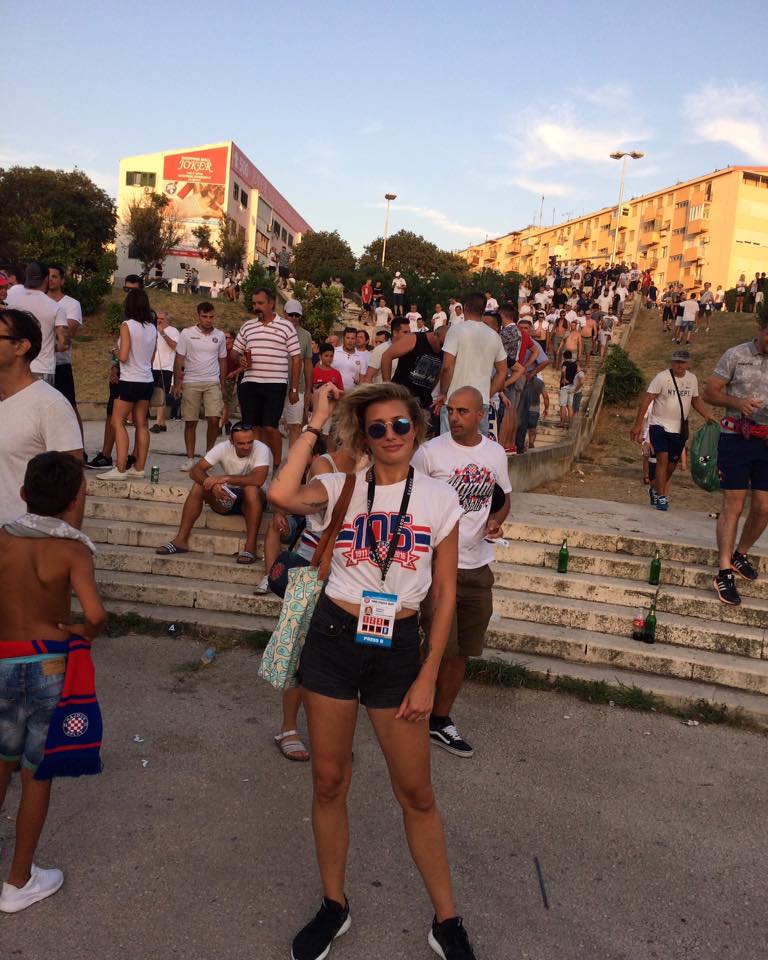
8. And finally, 3 things you would change in Croatia?
The drivers - do pedestrian crossings mean anything in Croatia?
Talk about the war - which I am surprised to see discussed often in the diaspora community. We will never move forward by looking back.
The amount of time it takes to get anything done. From the beloved Croatian bureaucracy to checking out at a grocery store. You quickly get used to the delay, and while I enjoy that waiters don’t rush to bring you your bill after coffee, it’s another story when paperwork is involved, or you’re at the bank or just trying to keep anything to a schedule. Schedules don’t really exist here, and neither does the concept of being ‘on time’. Remember, "I'll be there in 5 minutes" usually means at least 30 and probably an hour. Welcome to Dalmatia. It has its perks.
For more on the Croatian diaspora, check out the TCN dedicated section.
Are you a returnee who has moved back to Croatia and would like to be featured in this series? Please contact us on This email address is being protected from spambots. You need JavaScript enabled to view it.

